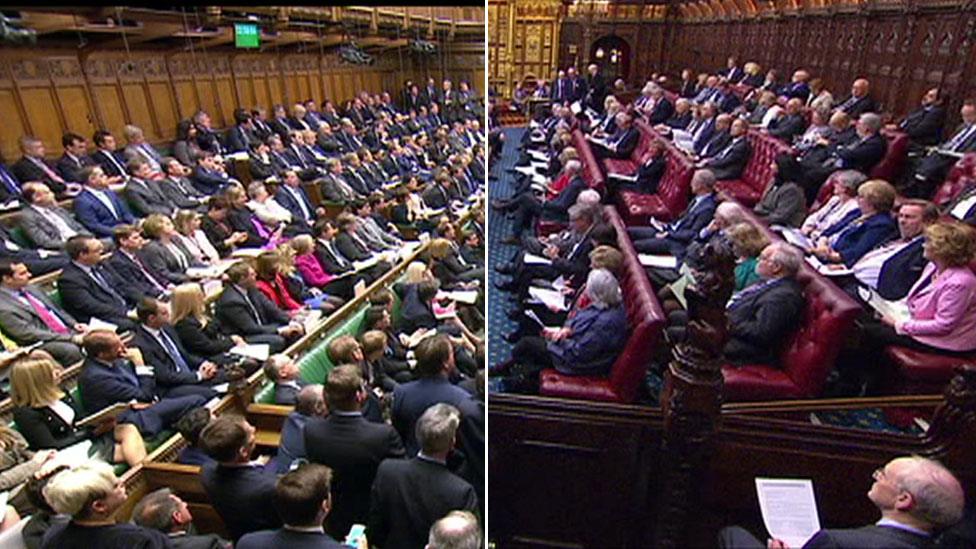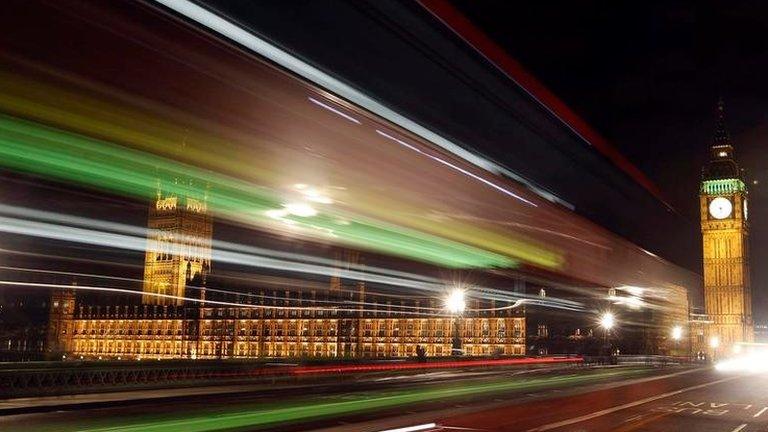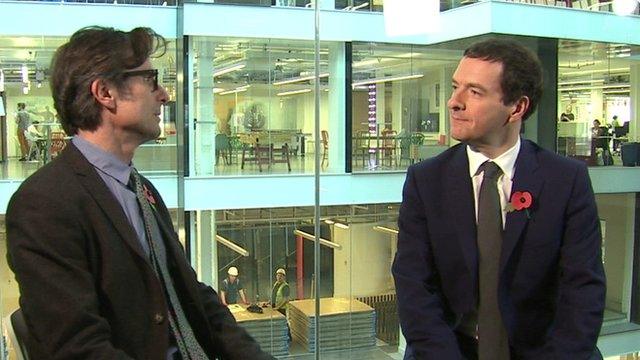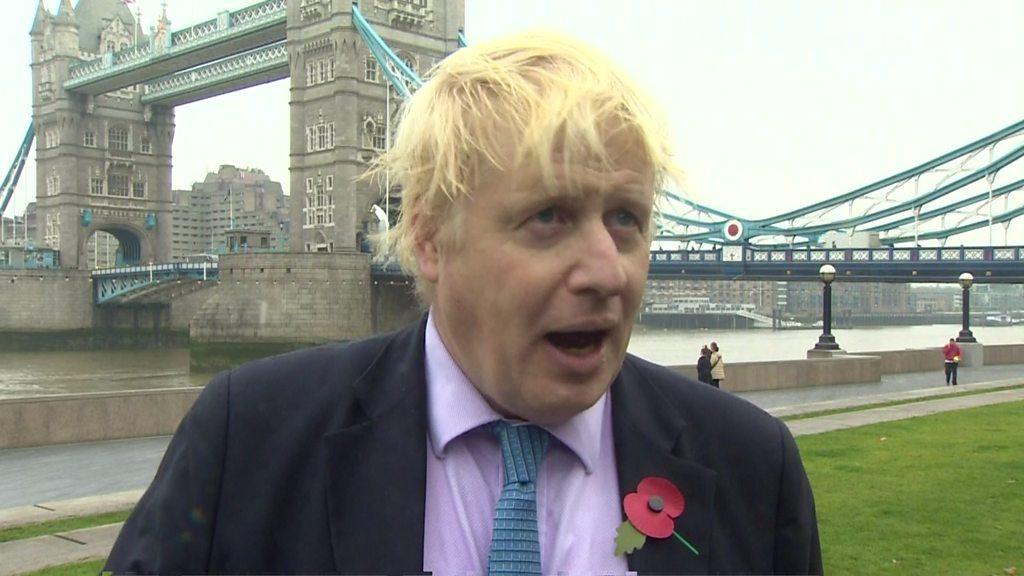Government to review Lords powers after tax credits defeat
- Published

The House of Lords has not traditionally blocked financial legislation that has the backing of MPs
The government has announced a review into the workings of Parliament after its defeats in the House of Lords over controversial tax credit cuts.
Downing Street said it would examine "how to protect the ability of elected governments to secure their business".
It will consider "how to secure the decisive role of the elected Commons in relation to its primacy on financial matters and secondary legislation".
But Labour accused the government of "intimidating" the House of Lords.
The review, to be led by former leader of the House of Lords Lord Strathclyde, comes as Tory MPs continue to express anger at the House of Lords' decision to vote to delay cuts to tax credits and to compensate those affected in full.
'Respect conventions'
MPs have approved the tax credit changes three times and ministers have questioned the authority of the Lords to challenge the Commons on such a major financial issue, saying it flew in the face of long-standing historical precedents.
Speaking earlier, Chancellor George Osborne said the Lords must "respect the constitutional conventions that says the elected part of our Parliament votes on financial matters and the unelected part doesn't".

Analysis by BBC political reporter Brian Wheeler
The House of Lords is not traditionally supposed to block financial legislation that has the backing of MPs.
This principle was established in 1911 during the constitutional gridlock that followed a decision by peers to block the Liberal Party's "people's budget".
But nothing is ever cut and dried in Britain's fluid, unwritten constitution. And both sides are angrily trading precedents and claiming that their opponents are overstepping the mark. If they could only agree where the mark is.

"The House of Lords has an important job as a chamber that says 'have you thought about this' or raises concerns and there were opportunities for the House of Lords to do that yesterday.
"They didn't take those opportunities. What they did was they blocked a financial matter. They haven't done that for 100 years and it does raise constitutional issues."
'Grudge match'
The BBC's political correspondent Ross Hawkins said the government felt "hard done by" and believed it could "rewrite or clarify the rules" to stop the House of Lords "over-reaching itself".
No 10 did not outline a timeframe for the review but said Lord Strathclyde, who served in the Cabinet for more than three years, would draw on a panel of experts.
The BBC's Economic Editor Robert Peston interviews Chancellor George Osborne after the government's defeat in the House of Lords over tax credits
Shadow chancellor John McDonnell said the move looked more like a "grudge match" than a serious exercise in reform.
"I'd like to see a reform programme for the House of Lords because I'm one of those people who supports an elected House of Lords," he said.
"But I find it a bit odd that just because the government doesn't get its way in bullying the House of Lords, suddenly they set up this review. And I think people will react against it. I think they will see it as intimidating the Lords simply because they didn't vote for Conservative party policy."
Unlike in the Commons, the government does not have a majority in the Lords and has suffered 19 defeats in the Lords since May.
Attacking the central role played by Lib Dems peers in Monday's defeat, former foreign secretary William Hague - who is set to join the Lords next month - described their 111 members as "ghosts of a ruined civilisation still wandering the catacombs and remembering the happy days in the sunlight when people above ground used to like them".
Writing in the Daily Telegraph,, external he said the government must now pass legislation to assert beyond doubt that "the supremacy of the Commons on matters of finance is an overriding principle of law".
Power to amend
Critics of the government say that it has mishandled the presentation of its tax credits policy and sought to enact the changes through a statutory instrument rather than a money bill, which the Lords cannot challenge, to restrict debate.
Conservative peer Lord Forsyth said this had been a mistake but insisted talk of a constitutional crisis was overstated. He said a possible solution was for the Lords to be given the explicit power to delay or amend secondary legislation in return for foregoing the authority to vote down such measures.
The peer also said it would be "insane" for David Cameron to create a new tranche of peers to give the government effective control of the Lords, since the House was already overcrowded with nearly 800 existing members.
Before Monday's defeat, peers had only blocked so-called secondary legislation on five occasions since 1945 and never on a financial matter.
The government narrowly avoided another defeat on Tuesday over its plans to accelerate changes to the electoral register, with peers voting down a so-called "fatal motion" which would have blocked them by a majority of 11.
- Published27 October 2015

- Published27 October 2015

- Published27 October 2015
